Multifunction Testers
These testers will test absolutely everything you need to check when completing or testing an electrical installation. Huge range of MFTs including the Fluke 1600 range, Megger installation testers and much more!
Find out more about Multifunction Testers below.


- Ideal for any domestic, commercial or industrial electrical installer
- Quick, easy access to all the testing procedures you need
- Reliable, accurate and fast testing in line with all regulations
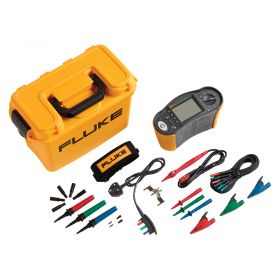

- Ideal professional electrical installers
- Built-in memory storage makes it easier to manage testing results
- Huge range of measurement functions - everything you'll need for testing electrical installations
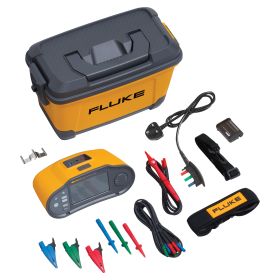

- The entry model in Fluke’s 1670 series of multifunction testers
- NEW voltage drop test
- NO double entry: results are automatically saved to test points
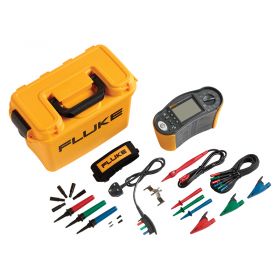

- AutoTest mode - automatically performs 8 testing procedures
- Built-in memory and huge range of measurement functions
- Fluke Connect enabled - wirelessly interface between your smartphone/tablet and other Fluke Connect tools
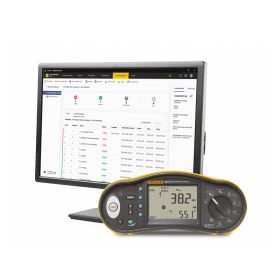

- MFT for professionals testing a variety of electrical installations
- TruTest Software for hassle-free data management and report creation
- TruTest Software’s intuitive interface makes it easy to manage large networks
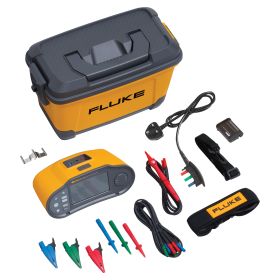

- Mid-range model in Fluke’s 1670 series of MFTs
- NEW voltage drop test, EV test, and Auto Test
- NO double entry: results are automatically saved to test points
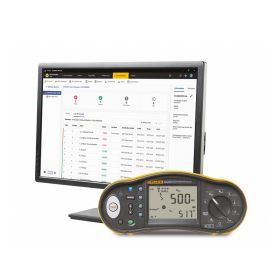

- Test domestic, commercial, and industrial installations
- Hassle-free data management and report creation
- Intuitive interface
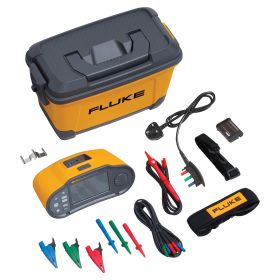

- Flagship model
- Voltage drop test, EV test, Insulation PreTest, SPD test
- IMD Test, & user-programmable Auto Test
- Results are automatically saved to test points
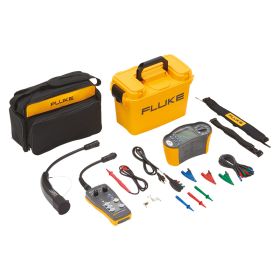

- Use the FEV300 Adapter to test EV charging stations with AC charging mode 3
- 1664FC MFT for safety testing electrical installations
- 1664FC MFT features a large, backlit display & three-layer memory
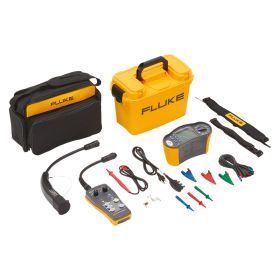

- Test EV charging stations with AC charging mode 3
- 1663 MFT for safety testing electrical installations
- 1663 MFT features a large, backlit display & three-layer memory
About Multifunction Testers
We're a leading supplier of Fluke and Megger multifunction testers, but why do you need one?
Multifunction testers, known commonly as MFTs or installation testers, are combination electrical testers that can be used to carry out all types of electrical testing procedures to verify and maintain electrical installations.
Similar to multimeters in terms of functionality, multifunction testers expand upon the common multimeter by carrying out testing across a much wider spectrum and also include unique testing procedures that you won't find on common DMMs. Since they can carry out multiple tests without the need to constantly switch the tester you're using, multifunction testers are an extremely common sight inside electricians' equipment. Without the hassle of constantly switching equipment to perform tests, electricians can stay in line with 18th-edition rules and regulations while carrying out their test procedures in a timely and efficient manner.
The most common testing procedures that multifunction testers can carry out include:
- Insulation resistance tests
- Earth continuity tests
- Automatic RCDs tests
- Measure loop impedance and line impedance
- PSCC (prospective short circuit current) tests to determine required circuit breakers and fuses
- Socket polarity tests
- Wiring polarity checks
- Phase sequence/ rotation checks
Not all MFTs can carry out all of these functions - it is important to make sure you get the right instrument for your needs, so make sure you check which testing procedures the multifunction tester you're looking at can perform before investing.
Multifunction testers are also commonly divided up into two categories - downloadable, and non-downloadable. Downloadable multifunction testers are designed with internal memory, allowing users to store test data, communicate this data to a PC and interact with it further using software packages. Non-downloadable MFTs are generally cheaper as they include no internal memory structure, and are designed for simple testing with users jotting down results gained.


